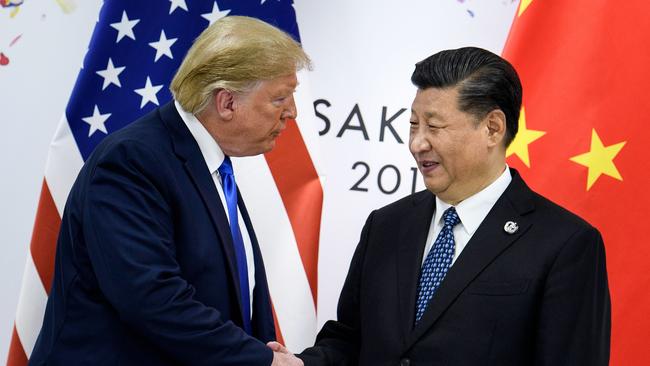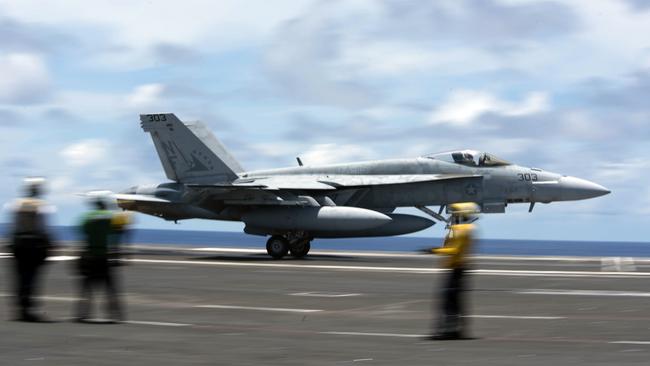
But the unprecedented global liquidity being injected into the system means that markets no longer reflect these dangers.
The economic dangers have been well documented but there has been little attention to the global threats that stem from the combination of a US president who, at this stage appears to have little chance of re-election, and a series of regimes which are under severe pressure.
Those regimes include China, Russia, Iran and North Korea and all are looking at whether the next four months of weak US presidency represents a chance to pursue their agendas.
In concentrating on our own economic challenges we often forget what is happening worldwide, including in China. And what’s happening inside China puts Taiwan at the top of any security risk agenda in the next four months.
Sadly COVID-19 has interrupted the global rise of the middle classes, which have boosted the demand for consumer goods over the last decade. That’s affected almost all countries.
Globally the World Bank estimates that COVID-19 will send 60 million people into extreme poverty (living on less than $US1.90 a day) so reversing the progress made in the past five years. And the Asian Development bank sees poor among its members (income of less than $US3.20 or less a day) rising by between 90 million and 400 million, taking the total to around one billion. Again, all the progress of recent years has been reversed.
That was perhaps predictable but what’s happening in China was not fully appreciated, given the prosperity we see from the populous nation.
Premier Li Keqiang last month revealed that two-fifths of China’s population earn less than $4.65 a day. There has been dramatic improvement but for China’s stability that improvement must continue.
When it is halted, as is happening now, regimes like China traditionally increase their spending and also appeal to nationalism. And that’s exactly what we are seeing from China. The higher infrastructure spending is boosting the iron ore and copper prices and so we benefit. Whether in the post COVID-19 world (whenever that might be) we will see a return of Chinese students and tourists in former numbers is in doubt.
But Chinese nationalism is breaking out on many fronts including India, the South China Sea and, of course, the economic measures against Australia.
But Taiwan is the biggest threat. On this issue I find the South China Morning Post a wonderful source and much of the material below comes from that newspaper.
Beijing considers Taiwan a wayward province that must be returned to the mainland fold – by force if necessary. It has suspended official exchanges with the island and stepped up its war games around Taiwan.
Last weekend two Chinese bombers briefly approached Taiwan’s air defence identification zone after flying from the East China Sea through the Miyako Strait between the Japanese islands of Okinawa and Miyakojima.
It was the tenth such incursion by China’s warplanes in the past month and the sixteenth this year. The clear message was that China intended both to practice for any future attacks and was sending a warning to the US against supporting the island.
In response to those Chinese incursions, President Trump has sent a flurry of warplanes, mostly reconnaissance aircraft, through Taiwan’s airspace. It appears the US operations were intended to monitor Chinese military activity in the Bashi Channel and South China Sea.

Taiwan’s defence ministry has stressed it has full control of movements in the air and sea surrounding Taiwan and asked the public to stay calm, but Su Chi, former secretary general of Taiwan’s National Security Council and now president of Taipei Forum, a private think tank, said he was concerned about the current situation.
“Given the military imbalance between Taiwan and the mainland, the absence of cross-strait dialogue and no efficient communication mechanism in place between the US and the mainland, I am worried about the situation because anything could happen,” said Su.
China’s increasing belligerence towards Taiwan has raised questions about whether the US would really come to the island’s aid if it was attacked. According to the South China Morning Post, a former senior security official warns Taiwan against “wishful thinking”.
In Washington will a lame duck president rekindle US nationalism by taking on China if it makes its Taiwan thrust in the next four months? If Trump did respond there is no certainty US defence power would prevail.
But just as China is pondering whether the next four months is the right time to act, so the leadership in North Korea and Iran is also pondering.
And, course, Trump may pre-empt them. These are tense times but for the market the money that is raining down is a wonderful antidote to security and economic ills.




The cocktail of severe global economic decline, a lame US president likely to be replaced by a higher business and wealth tax advocate, plus unprecedented defence dangers, would normally have severely impacted American and global share markets.